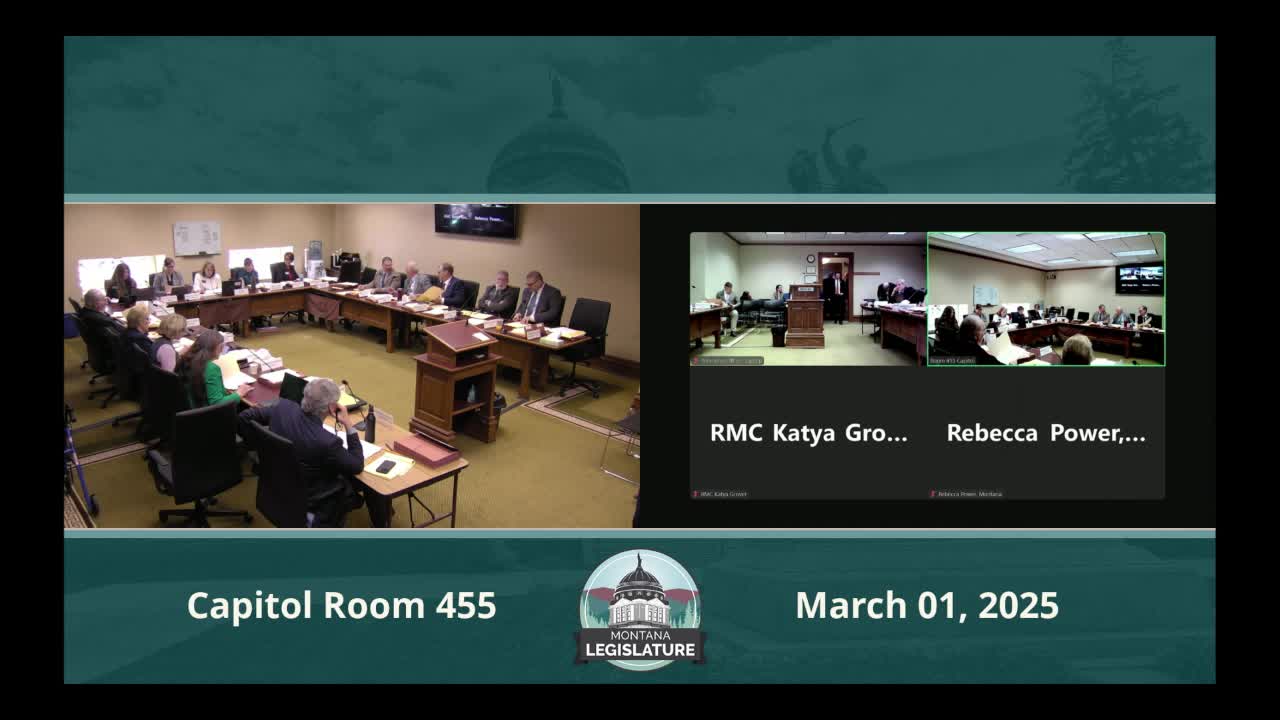Committee advances ban on foreign funding for statewide ballot measures after contentious hearing
Get AI-powered insights, summaries, and transcripts
Subscribe
Summary
Representative Braxton Mitchell introduced House Bill 818 on March 1, 2025, a measure that would prohibit foreign nationals from funding efforts to influence statewide ballot initiatives in Montana.
Representative Braxton Mitchell introduced House Bill 818 on March 1, 2025, a measure that would prohibit foreign nationals from funding efforts to influence statewide ballot initiatives in Montana.
Supporters told the House State Administration Committee the bill fills a gap in Montana law by applying the same ban on foreign contributions that already exists for candidate elections to statewide ballot measures. Opponents — including nonprofit groups and tribal representatives — said the bill would expand investigatory authority, carry severe penalties, and risk chilling lawful nonprofit advocacy and donor privacy.
"House Bill 8 18 is a straightforward bill," sponsor Representative Braxton Mitchell said in opening remarks, saying the bill would "prevent foreign nationals from funding efforts to influence our statewide ballot initiatives directly or indirectly." He cited other states that prohibit foreign money in ballot campaigns and framed the measure as protecting Montana—s self‑governance.
Austin James, representing the Secretary of State—s office, said foreign nationals are already prohibited from donating to candidates under Montana law and that adding statewide ballot issues to that prohibition is a logical extension: "The same common sense prohibition should also apply to a state ballot issue," he said.
Proponents from national and state groups detailed a pattern of large out‑of‑state spending in ballot measure campaigns. Witnesses named an organization (the 16 30 Fund) and referenced a foreign donor base alleged to have funded hundreds of millions nationally and several million in Montana ballot measure activity.
Opponents warned the bill—s drafting would expand the statute—s reach beyond statewide ballot measures, sweeping in local ballot issues and electioneering communications and creating mandatory investigatory duties. Nikki Zupanik, testifying on behalf of a coalition of groups, said the bill creates overlapping provisions and would require a county attorney or the Commissioner of Political Practices to investigate any notarized complaint — a process she argued could invite frivolous complaints and divert resources.
Tribal and nonprofit witnesses also argued the measure posed risks to direct democracy and to charities that lawfully engage in ballot issue advocacy. The Montana Nonprofit Association said compelled donor disclosure or harsh penalties could chill charitable giving and nonprofit participation.
Shelly Hendrickson Scott of the Commissioner of Political Practices told the committee COPP currently investigates notarized, jurisdictional complaints but that researching whether an entity is a foreign national would be new work for the office. She said COPP could dismiss frivolous complaints under existing administrative rules but that additional workload was possible.
Committee members debated scope and enforcement. Some members pressed that the underlying policy — preventing foreign interference in citizen initiatives — is important; others cautioned the bill as drafted would sweep more broadly than proponents intend and urged more narrowly tailored language.
During executive action the committee voted to report House Bill 818 out of committee with a do‑pass recommendation (11 ayes, 8 noes).
